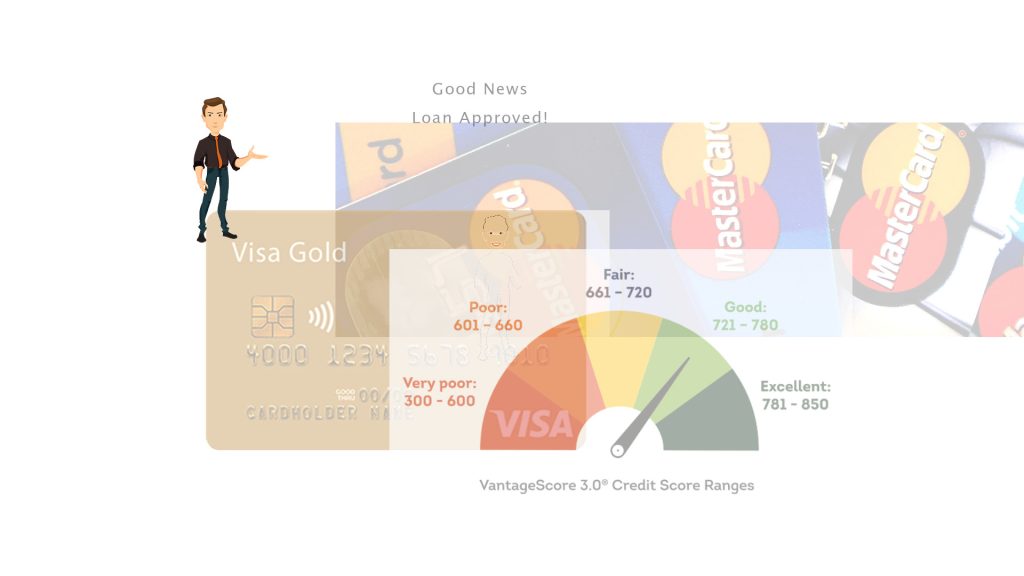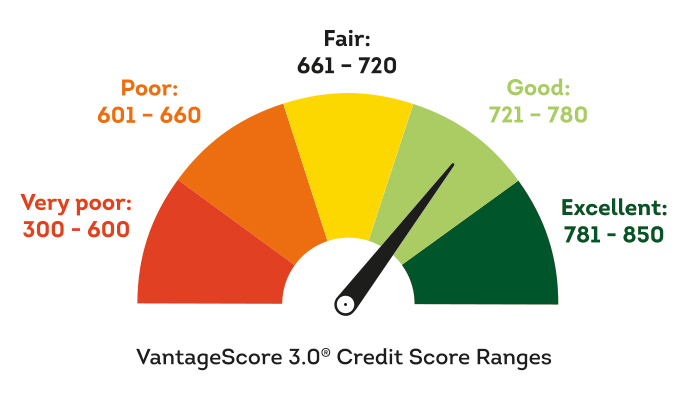
As an international student coming to Canada, understanding the concept of credit rating is crucial for your financial well-being and future plans. Your credit rating plays a significant role in various aspects of your life, from renting an apartment to obtaining a loan or credit card.
Here we aim to demystify credit history, credit ratings, explain their importance, discuss the transferability of credit ratings from your home country, and provide valuable tips on building your credit rating in Canada.
What is Credit History, Credit Rating & Credit Report?
In Canada, your credit history contains facts gathered from financial institutions, retailers and lenders about how you have handled credit. Most of this information stays in your credit file for seven years.
Credit rating, also known as credit score, is issued by credit bureaus and is a numerical representation of your creditworthiness. It is a measure of your ability to repay debts and your overall financial reliability. Credit rating agencies assess your credit history, including past loan repayments, credit card usage, and bill payments, to assign you a credit score. The higher your credit rating, the more trustworthy you appear to lenders, landlords, and financial institutions. Your financial performance is formulated as a credit report.
Your credit report contains personal, financial and credit history information. In general, it takes 30 to 90 days for information to be updated in your credit report.
Information in Your Credit Report
- Credit card, bank and other account details
- how much you owe to which institution
- Credit you use including credit cards, retail or store cards, lines of credit and loans
- Did you make your payments on time
- Did you miss payments
- Has any of your debt been transferred to a collection agency
- Have you gone over your credit limit
- Payments made without sufficient funds in account
- Bad cheques
- Chequing and savings accounts closed “for cause” due to money owing or fraud committed
- Bankruptcy or a court decision against you that relates to credit
- Debts sent to collection agencies
- Inquiries from lenders and others who have requested your credit report in the past three years
- Registered items, such as a car lien, that allows the lender to seize it if you don’t pay
Importance of Credit Rating
Your credit rating affects several aspects of your life, including:
Loan and Credit Card Applications: Lenders and financial institutions rely on credit ratings to determine whether to approve your loan or credit card applications. A higher credit rating improves your chances of receiving favorable loan terms, such as lower interest rates and higher credit limits.
Rental Applications: When seeking accommodation, landlords often request your credit rating to assess your financial responsibility. A positive credit rating can increase your chances of securing your desired rental property.
Utility and Service Providers: Some utility companies and service providers including phone service providers may check your credit rating before establishing an account. A good credit rating may waive security deposits or help negotiate better terms.
Who Creates Credit Rating in Canada?
Canada has two major credit bureaus for individuals.
They collect information from creditors, such as banks and credit card companies, about your financial performance.
Here is a sample of Equifax scoring

Here is a sample of TransUnion scoring

Who Wants to See Your Credit Report?
- Banks, credit unions and other financial institutions
- Credit card companies
- Other lenders
- Phone service companies
- Car dealerships
- Landlords
Transferring Credit Rating from Your Home Country
Unfortunately, credit ratings from your home country do not automatically transfer to Canada. Each country has its own credit reporting system, and Canadian financial institutions primarily rely on Canadian credit history.
However, some lenders may consider your international credit history on a case-by-case basis. It is essential to inquire with specific financial institutions about their policies regarding international credit history assessment.
Building Your Credit Rating in Canada
Open a Bank Account: Start by opening a Canadian bank account as soon as possible. Maintaining a bank account demonstrates stability and lays the foundation for building your credit history.
Apply for a Secured Credit Card: Secured credit cards are designed for individuals with limited or no credit history. These cards require a cash deposit as collateral, and your credit limit is typically equivalent to the deposited amount. Responsible use and timely payments can help establish a positive credit history. Check out Canadian banks that offer credit cards for international students.
Pay Bills on Time: Paying your bills, such as rent, utilities, and mobile phone bills, on time is crucial for building a positive credit history. Late payments can negatively impact your credit rating, so strive to meet all payment deadlines.
Apply for a Small Loan: Consider applying for a small loan or a credit-building loan from a financial institution. Timely repayments will demonstrate your ability to manage credit responsibly and positively impact your credit rating.
Utilize Credit Responsibly: Keep your credit utilization ratio low, which means using only a small portion of your available credit. Aim to utilize no more than 30% of your credit limit to maintain a healthy credit rating.
NOTE
As mentioned above when you ask for a loan or apply for a credit card, the company checks your credit report. This results in an inquiry in your credit report. Too many inquiries within a short period of time may have an adverse effect on your rating.
How Long to Create Good Credit Rating
At least a year but it is an ongoing process, so be patient.
Get Your Report Online
You can access your credit report online for free from Equifax and TransUnion. Other companies may also offer to provide your credit report for free.
How Often to Seek Your Credit Report
Consider getting your credit report from one bureau, then wait six months before requesting it from the other bureau. That way, you may be able to detect problems sooner.
